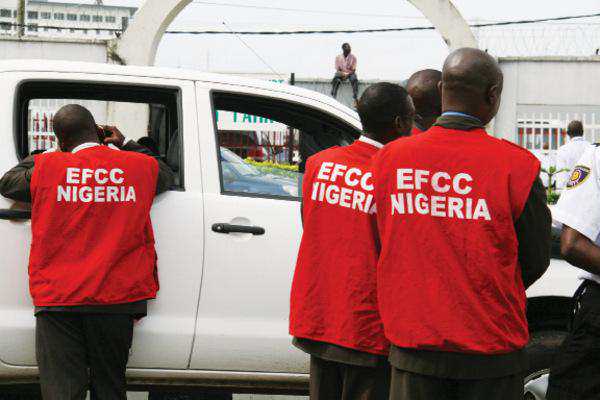Former Managing Director of the Nigerian Security Printing and Minting Company (NSPMC), Ehi Okomoyon was interrogated by the Economic and Financial Crimes Commission (EFCC) over alleged N750million Polymer notes contract.
On Sunday night, Okomoyon was arrested by officials of EFCC following the report sent to them by the Australian police, but he was later released yesterday after undergoing interrogation.
With the disappearance of millions of N1000 currency notes from the company, Okomoyon resigned his appointment just before things started heating up.
Nigerian officials allegedly received bribes for Securency, a note-printing firm partly owned by the Reserve Bank of Australia, which handled the polymer banknotes contract.
Professor Chukwuma Soludo, former Governor of the CBN was also questioned by the EFCC in January in connection with the probe.
A source said yesterday that the bribe sum could be more than N750million, going by the depth of the investigation conducted by the Australian police.
“It is left to us to conduct the Nigerian dimension of the scam. What I can tell you is that since January, the EFCC has made some breakthrough in its probe,” the source said.
The Head of Media and Publicity of the EFCC, Mr.Wilson Uwujaren, who confirmed Okomoyon’s arrest, held back with no details.
However, another source from Mint disclosed that, “I think the invitation of the former MD of Mint by the EFCC is a fact-finding one because the contract was purely a CBN affair”.
“It is a good development that the EFCC is finally trying to get to the root of the contract”.
“If you are talking of any bribery, it must have been perpetrated during the initial award of contract for the supply of polymer substrates to Securency in 2006 for the N20 banknote.
“The same template used for the N20 banknote was also applied to N5, N10, and N50 – without any fresh bid. It is curious that the CBN officials chose to adopt the same template in November 2008 without a fresh bid. The contracts for the printing of 1.915billion of N5, N10, and N50 notes were only awarded in April this year”.
“So, the approach adopted by the CBN was suggestive of a conspiracy or an understanding. The bribery scandal predated the award of the contracts in April, this year”.
“I don’t think the decision to print N5, N10, and N50 notes in polymer was the key thing. The bribery must have been done in 2006. The terms of the deal were only extended to the contracts for N5, N10, and N50 notes”.
“To show you that a cabal was at work, not every party was involved in the evaluation process”.
“It was a sealed deal because the CBN dictates who prints abroad, what substrates to print on as well as the quantity. The CBN even decides the companies that will clear and do the freight.”
The late President Umaru Yar‘Adua, in the company of the then CBN governor, launched the N5, N10 and N50 polymer notes on September 30, 2009 at the Presidential Villa.
The circulation of the new bank notes coincided with Nigeria’s 49th Independence Anniversary celebration.
There have been allegations of shady deals between some CBN officials and Securency International company of Australian. Although the contract for the printing of N5, N10, N50 notes were awarded in April 2009, the bribery scandal involving Securency occurred in 2006.
The probe conducted by AFP gave clues which the EFCC is examining.
According to a document, the CBN tender results for banknotes in 2006 showed how Securency bid for N20 polymer note at Euro 73.475 per 1000 notes, including freight charge.
But it was learnt that the cost was later reduced to Euro 59.88 by the CBN when the N20 polymer contract was awarded in 2006.
Others involved in the bid are: Global Securency (Australia); Gieesecke and Devrient (G &D) of Germany ; De La Rue (the UK ); FC Oberther (France ) and Nigerian Security Printing and Minting Company (NSPMC).

